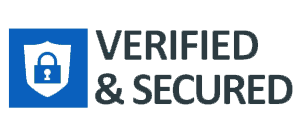Introduction: The Fall in Small Business Optimism Amid Economic Woes
U.S. small-business owners are navigating an increasingly challenging landscape, as reflected in the National Federation of Independent Business (NFIB)’s Small Business Optimism Index for August. Dropping from 91.9 in July to 91.3, the index remains consistently below its 49-year average of 98. In this article, we explore the reasons behind this darkening sentiment and what it means for factors like business lines of credit, small business loans, and overall financial stability.
Economists’ Miscalculations: A Clouded Forecast
Economists polled by The Wall Street Journal had predicted a marginal dip to 91.5, revealing a disconnect between market projections and the real struggles small businesses face, such as bad credit and broken invoicing systems.
The Inflationary Predicament: Ripple Effects on Business Operations
Inflation is a growing concern, with 23% of surveyed business owners citing it as their primary issue—up two points from July. These increasing costs can hamper the ability to secure a business line of credit or qualify for small business loans, particularly if inflation leads to higher interest rates.
Labor Market Strains: A Catch-22 Situation
A whopping 40% of small-business owners are struggling to fill job openings, causing further economic strain. This tight labor market makes short-term business loans and unsecured lines of credit even more critical as businesses try to scale without guaranteed manpower.
Sales and Revenue: A Broken Outlook
Sales figures have taken a hit, with a net negative 14% of owners reporting an increase in sales—the lowest in three years. Many are leaning toward alternative financial options like factoring to mitigate these circumstances, even as they compete with big tech for market share.
Big Tech vs. Small Companies: The Imbalance
The role of big tech in further eroding the prospects of small companies cannot be overlooked. These giants offer stiff competition, making it difficult for small businesses to keep pace, let alone grow. In such an environment, innovative financial solutions like short-term business loans become increasingly relevant.
Bill Dunkelberg Weighs In: The Two Major Obstacles
“Inflation and the worker shortage continue to be the biggest obstacles for Main Street,” summarizes NFIB Chief Economist Bill Dunkelberg, further emphasizing the precarious position of small businesses in the current U.S. economy.
Conclusion: An Urgent Need for Strategic Financial Solutions
With declining optimism and increasing financial pressures, U.S. small-business owners need to seek innovative solutions. Whether that means exploring unsecured lines of credit, reevaluating their invoicing strategies, or considering alternative financing options like factoring, immediate actions are required to weather these turbulent economic conditions.
Frequently Asked Questions
- What is the NFIB Small Business Optimism Index?
- The NFIB Small Business Optimism Index is a monthly survey designed to measure the sentiment among U.S. small-business owners.
- How can small businesses cope with high inflation?
- Small businesses might consider a range of strategies, from securing a business line of credit to cover short-term costs to considering price adjustments.
- What are the alternatives to traditional small business loans?
- Alternatives include unsecured lines of credit, short-term business loans, and factoring services that can provide immediate cash flow.
- Why is the labor market so tight, and how are small businesses affected?
- A combination of factors, including changing work patterns due to the pandemic, has led to a tight labor market. This has made it more difficult for small businesses to find suitable employees, increasing the importance of flexible financing solutions.
- What role does big tech play in the struggles of small companies?
- Big tech companies offer stiff competition in almost every sector, forcing small businesses to find innovative ways to remain competitive. This often involves seeking additional financing solutions to invest in growth and technological advancements.
By grasping the implications of NFIB’s findings, we gain not just an insight into the challenges facing small businesses, but also an understanding of the larger economic picture. The need for proactive measures is now more crucial than ever.


